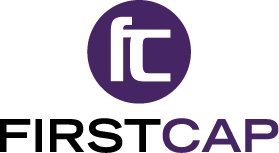Debt Collection Tips for Smaller UK Businesses and Sole Traders
All UK businesses struggle with recovering debts at some time; so it’s important to operate stringent debt recovery controls and also know the right time to instruct professional debt recovery services. We’ve put this brief guide together to help any sole trader or small business with credit control and collections.
Debt collection tips for UK business owners
Although collecting the cash you’re owed can be time-consuming, it’s essential to have robust systems in place to chase customers for debt. If your business does not have the available time to chase debts or your business leadership team is uncomfortable chasing debtors, one immediate and long term solution to debt collecting issues is to outsource the credit control process entirely (https://firstcapitol.co.uk/credit-control).
Outsourcing your credit management from the outset could be a cost-effective way to handle debt collections and also ensures your business remains at arm’s length. Find out more in about debt collection here, or give us a quick call to learn all the ways the expert teams at First Capitol can save money for your business.
If you prefer to operate your own debt collection in-house, then the following tips may help smooth the process and ensure quicker payments.
– Robust, efficient debt collection relies on the clearest systems to reduce payment delays. Your terms and conditions should be clearly stated on all invoices issued.
– Offering small discounts for prompt payment can often encourage customers to pay within stipulated timeframes. For example, a 2.5% discount for all payments within 30 days of invoice date could boost your business cash flow immensely. If this is the route you decide to go, you should ensure this information is printed in bold type in all your standard business invoices.
– It’s often the case that payments due from businesses you supply are delayed due to lack of information. This is particularly true for larger organisations which may need all invoices approved prior to any issue of payment. One way to avoid situations of this nature is to provide all required details within your invoices or to attach confirmations with invoices. For example, if you have supplied electrical services to a large building contractor client, attaching email or letter correspondence relating to the order could make it far easier for your debtor customer finance team to tie up all the details of your invoice and approve it for payment.
– Another tip for smaller businesses supplying goods or services to larger organisations is to ensure the correct paperwork is in place at the outset. Many accounts teams delay payment to suppliers who don’t quote a purchase order number on invoices. Indeed, if there is no record of an official purchase order some companies will refuse to pay debts at all. In this respect, requesting official purchase orders or signed order forms at the time you receive any order will protect your back and also ensure payments are expedited.
Get in touch with First Capitol today to find out more about us and learn more reasons why our specialist agency is number one for small business debt collections.
Understanding B2B commercial debt recovery
Sometimes, it gets to a point where a business needs help from a debt collection professional to recover debt from another company. Once you have exhausted all other recovery options, hiring an external collections agency is a wise idea, as commercial debt collection is carried out by professionals who use special resources and experience.
Why use a commercial debt collections agency?
What makes an agency more efficient at getting the debt you have been unable to recover? To begin with, this is what they do. They possess all the tools, strategies, and resources required to increase the chances of recovering your money. They also have legal aid to help you deal with any legal issues that may arise during the collection period. They know all the laws revolving around debt recovery. This means that you’ll be working with a team of experts specialised in this line of work. Besides that, they will free up your time and allow you to focus on other aspects of your business.
After how long should you involve a commercial recovery agency?
Hiring professionals is a great move, but it needs to be done at the right time. Evaluate your client, the relationship you have with them, and the account. Consider how old the invoice is. The older it gets, the harder it is to claim your money. However, if it’s still new, you may have a chance of solving the issue on your own.
Did you send follow up letters? Has the client gone under the radar? If they are still in contact, maybe all they need is some time. Ensure that you have tried all options before hiring an agency.
How do you find the right agency?
Getting recommendations is the first thing you should do. Do your due diligence by checking credentials and following that up with the Better Business Bureau and the Commercial Collective Agency Association. The agency should be licensed, insured and experienced in the commercial debt collection field. They need to keep you in the loop because although you want to avoid confrontation with the business, you still want to be informed about the process. It will also help if they are easy to communicate with.
Debt recovery: a guide for small business owners
Being owed money is a frustrating situation that is sadly all too familiar for many business owners. So, what should you do if you’ve sent the invoice and the client still hasn’t paid what they owe you? What if they are flat out refusing to pay for the work you’ve done? Read on for our practical guide to debt recovery…
1. Follow up
If someone owes you money, the first point of call should always be to send a friendly reminder to the debtor. After all, the client may simply have misplaced the invoice, or perhaps they were away on holiday or were dealing with family illness at the time.
If the client is refusing to pay the invoice, you should make reasonable efforts to find out exactly why they are unhappy and address the situation. Don’t be afraid to pick up the phone and talk it over with the client; sometimes a simple five-minute conversation is enough to resolve things.
Although you might feel extremely angry and frustrated, it’s always best to keep communication polite and courteous at all times. It can be tempting to fly off the handle, but that’s ultimately unlikely to get you the result you are looking for.
2. Consider if it is worth pursuing
Another thing to consider is whether the amount owed is actually worth pursuing. For example, if it’s only a very small amount, it might be better to let it go and instead put your energies into more important tasks. You also need to consider the costs of pursuing the debt and any fees you might have to pay.
3. Send the debt to collections
If you decide you want to pursue the debt and you’ve tried all self-initiated avenues of debt recovery without any success, now is the time to contact a debt collection agency. A reputable collection agency can pursue the debt on your behalf and will have the experience, knowledge and skills needed to make a successful recovery in an efficient and timely manner.
Always make sure to choose a reputable debt collection agency that possesses the skills and experience in the relevant area of debt recovery. In addition, make sure you fully understand the costs involved before committing to use the agency.



